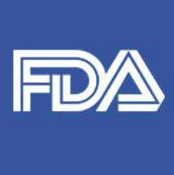NEHA Awarded FDA Food Safety Cooperative Agreement to Build Capacity for State and Local Regulatory Agencies

The National Environmental Health Association (NEHA) has been awarded a 5 year, $5 million cooperative agreement to develop and implement critically needed training for state, local, territorial, and tribal food safety agencies. This training will assist the U.S. Food and Drug Administration (FDA) in meeting the requirements of Section 209(a) of the FDA Food Safety Modernization Act (FSMA) and fully develop an integrated food safety system (IFSS).
Under the agreement, NEHA will also research training needs for IFSS food and feed inspectors and regulators, train instructors to meet FDA-identified competencies, oversee/audit course instructors, deliver IFSS food-related training courses, and develop new courses based on feedback from the training needs assessment responses.
“A safe and secure food supply is a profoundly local issue. This supply is safeguarded by local environmental health professionals, whose capacity will be further enhanced through training provided as an outcome of this investment. This means every American family can trust the public health system is working tirelessly to protect and promote their health,” said Dr. David Dyjack, NEHA’s executive director and chief executive officer.
Through this cooperative agreement which begins September 1, 2015, NEHA will present a framework that will enable state and local agencies to easily receive FDA-sanctioned courses under IFSS food programs, as well as supporting the efforts of FDA by maintaining training records for course participants and instructors, and issuing course certificates to those who successfully complete training.
NEHA’s long history in food safety dates back to 1937 with the development of registered environmental health specialist/registered sanitarian (REHS/RS) who were among the first health professionals charged with inspecting and regulating our food supply. Additional food safety credentials have since been developed by NEHA, Certified Professional--Food Safety and Certified in Comprehensive Food Safety– which further establish requirements for specialized training and demonstrated knowledge in the safe procurement, storage, handling, preparation, and distribution of food.
“NEHA’s previous success with collaborative, cross-functional trainings that improve relationships and open lines of communication between the retail food industry and local food regulatory agencies, gives us a strong foundation to further build training and education that meets the needs of the full spectrum of food safety training audiences,” said Dyjack.
In the past 3 years, NEHA with FDA funding has launched Industry--Foodborne Illness Investigation Training and Recall Response trainings aimed to assist industry and regulators in producing a more rapid, efficient, and effective response to foodborne illness incidents and food recalls. The trainings also identify the steps in recall and outbreak response, clarify roles and responsibilities of each before, during, and after a potential incident, and determine control measures based on model practices that rapidly and effectively prevent further transmission of illness.
In 2013 at the request of the Council to Improve Food Outbreak Response, NEHA issued a special report, Assessment of Foodborne Illness Outbreak Response, which highlighted some of the staff capacity challenges, budget issues, and training needs for local and state agencies to effectively respond to foodborne illness outbreaks.
Looking for a reprint of this article?
From high-res PDFs to custom plaques, order your copy today!




.png?height=200&t=1661887788&width=200)